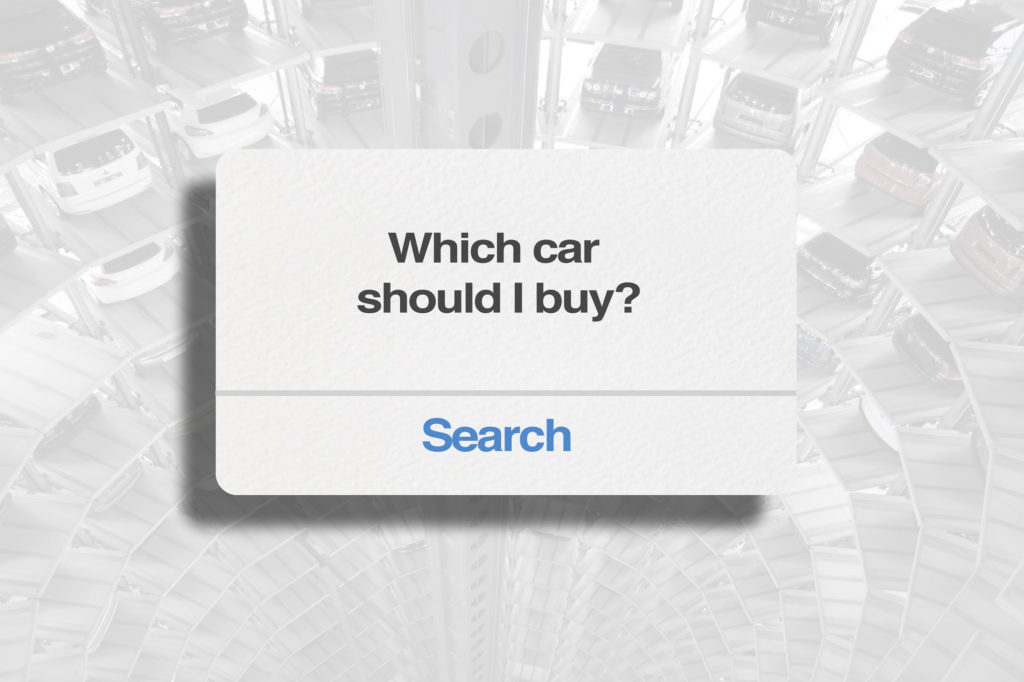The Power of Dealership and Customer Trust in Automotive Marketing

In the deep dark recesses of black-and-white television, there was a game show hosted by Johnny Carson called "Who Do You Trust?" The show was a long-running hit because, in a comedic way, it explored a fundamental human emotion — trust. That emotion resonates strongly in the auto industry because it is far easier to sell vehicles to people if they trust you, your business, and the process than if they don't, which is why it is a mystery that auto retailers don't spend more time cultivating trust within their potential customers.
Though some strides in that direction have been made over the past 20 years, auto dealers and auto salespeople still lag virtually all other professions in terms of trustworthiness. Recent rounds of polling by the Gallup organization say that Americans believe only professional lobbyists and members of the U.S. Congress are less honest and less ethical than car salespeople. That's a pretty low standard, isn't it?
In its series of "Trusted Automotive Brand" studies, AMCI Global, the respected auto industry advisory company, found the customer's perception of trust in the auto industry is, at best, tenuous. The most recent of the studies calculated that the "Trust Indices" of the top automotive brands are below 50 on a 100-point scale, with 1 being not trusted and 100 being completely trusted. In comparison with many other consumer product and retail categories, carmakers and car dealers lag well behind. Some might find it ironic that consumers put more trust in retailers who sell them shaving cream or soft drinks than those that sell them $50,000 vehicles, but that is the current state of the business.
"The auto industry has been chasing satisfaction for decades now," Ian Beavis, AMCI's chief strategy officer, told me. "But the industry is still putting $4,000 on each car to persuade people to buy. What we've found is satisfaction is not nearly the driver of loyalty and advocacy that trust is."
"Trust is an emotional measure," Beavis added. "The industry builds things; it is used to working with things. But to build trust it must rely on the human element."
Trust a powerful human emotion and an emotion that is closely tied to buying decisions. While many observers and critics of the industry suggest that providing the car-buying consumer with more information and data will improve the process, what they fail to grasp is that the purchase of a vehicle is, at its heart, an emotionally driven decision. As I said more than 20 years ago in my book, The Complete Idiot's Guide to Buying or Leasing a Car, nobody really needs a new car. Instead, the industry revolves around the fact that millions of people each year really want one. If a new vehicle's purchase devolves to simply a rational "asset acquisition" that would best be done by a professional, a lot of the art and most of the profit leaks out of the business like air shooting out of a punctured balloon.
Instead, the best way to court an emotion-driven purchase is to cultivate that emotion with another deeply held and powerful emotion — trust. If consumers trust the product, the maker of the product, the retailer of the product, and the process they go through to purchase the product, they will be far more likely to buy — and pay more — than if they lack trust in any or all of those aspects. Further, Beavis and I agree that it has never been more critical to the auto industry than now. An automotive retailer's role is changing before our eyes as electrification, autonomy, and mobility services become more and more prominent. Consumers want to learn about the new technologies from people they trust. They don't want to figuratively keep their hand in their wallet pocket as they are being educated about very expensive technology.
Factors That Diminish Trust

The sad fact is that several extremely common auto industry practices are not just neutral to building trust; they are antithetical to it. Take the time-honored "ups" process, for example. A prospect walks onto the lot, and the next salesperson in line goes out to greet her or him and, one hopes, start a relationship that will culminate with that person agreeing to transfer $50K of their money into the hands of that dealership in return for a vehicle the prospect could buy at any one of a number of same-brand stores in their market. That's a multi-thousand-dollar crapshoot right there. Isn't there a chance customer, salesperson, and store would be better served by letting the customer choose the salesperson they'd like to work with?
Not traditional? Too difficult?
Yes to the first. No to the second. Many dealers around the country are having success by posting photos and biographies of their salespeople online. That way, customers can decide for themselves who they want to deal with and, implicitly, who they are likely to trust. Among many who have discovered this a successful strategy, I have interviewed a salesperson in Minneapolis who uses his musical background to build rapport with his potential clients, and he reports that many of them have not only purchased cars from him but have also become friends. Why? He establishes trust with them.
Another traditional sales technique that is antithetical to building trust is the age-old F&I process. Consider the psychology of this from the customer's point of view. The prospect has typically spent at least an hour with the salesperson and has managed to put aside the in-bred lack of trust in that stranger at least enough to essentially complete — at least in his or her mind — a deal for a new vehicle, a very big thing in that person's life. And then what happens? While the customer thinks the deal is done and only "paperwork" remains, she or he is then marched into a different office to meet a new person with whom they have no relationship at all. Then that person immediately tries to sell them stuff. A lot of stuff. Expensive stuff. Can't you see the tenuous level of trust that was built between the salesperson and the customer go flying right out the window?
Instead of taking this trust-destroying path that should have disappeared when policemen quit hitting suspects with rubber hoses, wouldn't it be better to empower salespeople to take the customer from first inquiry to delivery? Isn't this approach more likely to engender and reinforce trust and grease the wheels of a sale? Note, too, this doesn't preclude selling products and services that are typically sold by the F&I manager. Quite the contrary, if the salesperson whom the customer trusts is selling these goods and services, the take rate is likely to be higher than in the traditional process.
Developing Trust
You don't have to be a clinical psychiatrist to see that developing and nurturing a trusting relationship between customer and store personnel is a good thing. Who do you want to buy something from? A person you trust or a person you suspect is dishonest, unethical, and thus untrustworthy? That should be a no-brainer.
So how do you develop and nurture trust between your personnel and would-be customers? As I outline in my most recent book, The GR Factor: Unleashing the Undeniable Power of the Golden Rule, the key is treating people (and prospects are people, by the way) in the manner you would want to be treated. In the book, I wrote this: "Treating others as you would want to be treated is not only a philosophy and an attitude, it is also the basic premise that enables win-win situations, and win-win situations are foundational to sustainable business success."
That is not just a religious affirmation. It is something you can, quite literally, take to the bank.
Tags:
authored by
Jack Nerad
Get Curated Insights
Content worth the click


